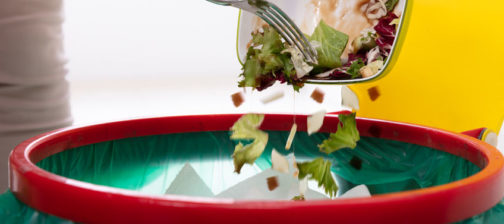Written By Julie Paiva, CHHC
Health isn’t just about eating all your vegetables and getting enough exercise; it’s equally important to relax, play, and laugh. We’ve all heard that “laughter is the best medicine,” and it’s true! One of the best feelings in the world is the deep-rooted belly laugh with friends or family. Sharing humor is half the fun—in fact, most laughter doesn’t come from hearing jokes, but rather simply from spending time with our loved ones.
Laughter is fun
This social aspect plays such an important role in the health benefits of laughter. You can’t enjoy a laugh with other people unless you take the time to really engage with them. When you care about someone enough to switch off your phone and really connect face to face, you’re engaging in a process that rebalances the nervous system and puts the brakes on defensive stress responses like “fight or flight.” Plus if you share a laugh, you’ll both feel happier, more positive, and more relaxed—even if you’re unable to alter a stressful situation itself. This is great for our mental well-being.
Laughter is healing
There are so many other benefits of laughing beyond deepening our bonds with other people, helping us feel more alive, and easing our anxieties. Laughter can also lower blood pressure, reduce stress hormone levels, boost immunity, and release endorphins. A wholesome big belly laugh will even strengthen our abs! Most importantly, it strengthens our general well-being and helps our bodies to relax from the constant state of chronic stress most of us are in.
Laughter is powerful
Laughter is a powerful antidote to stress, pain, and conflict. Nothing works faster or more dependably to bring your mind and body back into balance than a good laugh. Humor lightens your burdens, inspires hopes, connects you to others, and keeps you grounded, focused, and alert. It also helps you to release anger and be more forgiving. With so much power to heal and renew, the ability to laugh easily and frequently is a tremendous resource for daily troubles, enhancing our relationships, and supporting both physical and emotional health. Best of all, this priceless medicine is fun, free, and easy to use.
Laughter is therapy
The benefits of laughter are so universally recognized that laughter therapy has become a widely used modality for holistic healing. The National Cancer Institute defines it as “a type of therapy that uses humor to help relieve pain and stress and improve a person’s sense of well-being.” It may also be used to “help people cope with a serious disease. Laughter therapy may include laughter exercises, clowns, and comedy movies, books, games, and puzzles.”
Laughter is a gift
Did you know that the average four-year-old laughs 300 times a day, while the average 40-year-old only laughs four times!? It’s unfortunate, but true. Infants begin smiling during the first weeks of life and laugh out loud within months of being born. Even if you did not grow up in a household where laughter was a common sound, you can learn to laugh at any stage of life. Begin by setting aside special times to seek out humor and laughter, as you might with working out, and build from there. Laughter therapy is a helpful step in reminding adults how to use their inborn gift of laughter to cultivate greater joy and health.
Here are some ways to start:
Smile. Smiling is the beginning of laughter and like laughter, it’s contagious. When you look at someone or see something even mildly pleasing, practice smiling. Instead of looking down at your phone, look up and smile at people you pass in the street, the person serving you a morning coffee, or the co-workers you share an elevator with. Notice the effect this has on others.
Count your blessings. Literally make a list. The simple act of considering the good things in your life will distance you from negative thoughts that are a barrier to humor and laughter. When you’re in a state of sadness, you have further to travel to get to humor and laughter.
When you hear laughter, move toward it. Sometimes humor and laughter are private, a shared joke among a small group, but usually not. More often, people are very happy to share something funny because it gives them an opportunity to laugh again and feed off the humor you find in it. When you hear laughter, seek it out and ask, “What’s funny?”
Spend time with fun, playful people. These are people who laugh easily–both at themselves and at life’s absurdities–and who routinely find the humor in everyday events. Their playful point of view and laughter are contagious. Even if you don’t consider yourself a lighthearted, humorous person, you can still seek out people who like to laugh and make others laugh. Every comedian appreciates an audience.
Bring humor into conversations. Ask people, “What’s the funniest thing that happened to you today? This week? In your life?”
Laugh at yourself. Share your embarrassing moments. The best way to take yourself less seriously is to talk about times when you took yourself too seriously.
Attempt to laugh at situations rather than stress over them. Look for the humor in a bad situation and uncover the irony and absurdity of life. When something negative happens, try to find a way to make it a humorous anecdote that will make others laugh.
Surround yourself with reminders to lighten up. Keep a toy on your desk or in your car. Put up a funny poster in your office. Choose a computer screensaver that makes you laugh. Frame photos of you and your family or friends having fun.
Remember funny things that happen. If something amusing happens or you hear a joke or funny story you really like, write it down or tell it to someone else to help you remember it.
Don’t dwell on the negative. Try to avoid negative people and don’t dwell on news stories, entertainment, or conversations that make you sad or unhappy. Many things in life are beyond your control—particularly the behavior of other people. While you might think taking the weight of the world on your shoulders is admirable, in the long run it’s unrealistic and unhealthy.
Find your inner child. Pay attention to children and try to emulate them—after all, they are the experts on playing, taking life lightly, and laughing at ordinary things.
Make laughter your new health goal!




